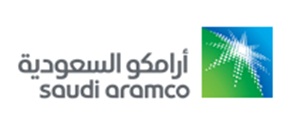Saudi Aramco emerged the worst sufferer in the Opec deal that failed to prop up falling oil prices through fresh production cutbacks as the shares fell below IPO price for first time, and pulled down Gulf stock markets along with it.

Shares of state-run oil giant Saudi Aramco traded at 30.90 riyals ($8.24), falling below its original IPO price for the first time on Sunday and were down 6.36 per cent from the previous close.
Saudi Aramco’s IPO debuted on the Riyadh stock exchange with a listing price of 32 riyals in December. The IPO had vaulted Saudi Aramco to the position of the world’s most valuable publicly traded company when its share price gave it a record valuation of $1.7 trillion after 1.5 per cent of the firm was listed on the local stock exchange late last year.
Stock markets across the rest of the Gulf also fell dramatically during Sunday trading. Saudi Arabia’s stock exchange, the Tadawul, was down 7.7 per cent in afternoon trading.
The Abu Dhabi index fell 5.8 per cent, Dubai’s Financial Market General Index was down 7.47 per cent while Kuwait’s index plunged 10 per cent.
Saudi Arabia announced drastic crude price cuts on the weekend in a declaration of a price war after the Opec+ cartel fell apart on Russia's refusal to lower production. Saudi official selling prices fell $8-$10.25 below Brent, registering the sharpest fall in at least 20 years. They also hinted at hiking production by more than 2 million barrels per day.
The Kingdom at the same time appears to be fighting off a coup. Crown Prince Mohammed bin Salman arrested three royal family members on the weekend, including a brother of the king. Rumors have resurfaced once again that the king is dead or gravely ill. Saudi Arabia also imposed a quarantine on al-Qatif city to halt the spread of coronavirus.
International and US oil benchmarks traded at multiyear lows on Friday, with Brent crude closing at $45.27, down more than 9 per cent, while US West Texas Intermediate sank more than 10 per cent lower to $41.28, its lowest level since 2016.
The crunch comes amidst investor worries about the global demand outlook as the deadly coronavirus, which has killed at least 3,507 people and sickened more than 103,000, slows economic productivity and trade around the world.


















